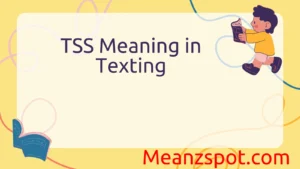In today’s fast-paced texting world, acronyms like HYD have become second nature in conversations—especially on Snapchat, Instagram, WhatsApp, and TikTok. If you’ve received a message that says “HYD” and paused for a second, don’t worry—you’re not alone. This popular abbreviation is short for “How You Doing?”, a casual and friendly way to check in with someone.
In 2025, staying on top of trending text slang is more important than ever, especially with the rise of short-form messaging and Gen Z communication styles. Whether you’re chatting with friends, replying to a crush, or just trying to sound less like a robot, knowing what HYD means (and how to respond) keeps you in the loop.
This guide breaks down the meaning, origin, usage, and real-life examples of HYD so you can reply with confidence—and maybe even throw it into your own DMs like a pro. 📲💬
Definitions & Meaning
At its core, “hyd” is an abbreviation for the phrase “How you doing?” It compresses four words into three letters, making it ideal for quick texts. The breakdown is simple:
- H = How
- Y = You
- D = Doing
Typically, “hyd” serves as an informal greeting, much like “hey” or “hi,” but with a friendly check-in embedded. For example:
Person A: “hyd?”
Person B: “I’m good, just finished work. You?”
Because it omits punctuation and capitalization, “hyd” fits seamlessly into the casual tone of digital platforms. It’s less formal than “How are you?” yet more personal than a simple “hey.” Although brevity is its hallmark, the intent behind “hyd” remains genuine: to inquire about someone’s well-being.
Origins & History
The rise of “hyd” can be traced back to the early days of SMS texting and instant messaging services like AOL Instant Messenger (AIM) and MSN Messenger in the late 1990s and early 2000s. Character limits on early mobile phones encouraged users to invent shortened versions of common phrases. As smartphones became ubiquitous, these abbreviations endured, carried over into platforms such as WhatsApp, Facebook Messenger, and iMessage.
The exact moment “hyd” emerged is difficult to pinpoint, as it likely evolved organically among users seeking efficiency. Over time, “hyd” spread through peer groups and online forums. Today, its usage is bolstered by predictive text keyboards that learn users’ most frequent abbreviations, making “hyd” one of the suggestions when typing “h.” Its persistence underscores how digital language adapts: the need for rapid, informal communication consistently drives linguistic innovation.
Usage in Different Contexts
Social Media
On Twitter or Instagram, where character space is precious, “hyd” allows users to check in on friends or followers:
“hyd👋? Long time no chat!”
Professional Settings
While “hyd” is rarely appropriate in formal emails or LinkedIn messages, it may appear in instant messaging among colleagues who share a casual rapport:
“hyd today? Remember, team call at 2 PM.”
Pop Culture & Gaming
In gaming communities and streaming chats, speed matters. Players often type “hyd” between matches to keep morale high:
“hyd squad? Ready for the next round.”
Group Chats & Family Threads
Family group chats can be relaxed spaces where “hyd” signals casual check-ins:
“hyd everyone? Grandma wants to know how your day was.”
Across these contexts, the tone remains friendly and informal. Still, it’s essential to gauge your audience: use “hyd” only when a laid-back vibe is appropriate.
Common Misunderstandings & Clarifications
- “Hyd” vs. “HyD”
Some might capitalize the “D” or type it as “HyD,” but the meaning remains unchanged. Consistent lowercase is most common. - Confusion with Other Acronyms
- HYD can stand for “Hyderabad” in travel itineraries or airport codes, but context—such as a city name—usually makes the meaning clear.
- In technical fields, “HYD” might mean “High-Yield Debt.” Again, industry context prevents misinterpretation.
- Pronunciation
People often voice “hyd” as “hey-dee” or simply read it as the full question, “How you doing?” Don’t be alarmed if pronunciation varies. - Overuse Leading to Miscommunication
If you rely solely on abbreviations, you risk sounding impersonal. Pair “hyd” with emotive emojis or follow-up messages to convey genuine interest. - Assuming Familiarity
Always consider whether the recipient understands texting slang. If they seem puzzled, switch to the full phrase, “How are you doing?”
Alternatives & Synonyms
While “hyd” is efficient, sometimes you need variety or clarity. Below are several alternatives:
| Abbreviation | Meaning | Tone |
|---|---|---|
| wyd | “What are you doing?” | Casual, curious |
| hru | “How are you?” | Friendly |
| sup | “What’s up?” | Very casual |
| yo | “Hello” | Slangy |
| hey | “Hello” | Neutral |
Using these alternatives can prevent monotony and ensure your message matches the tone of the conversation. For example:
“hru today? Any plans for the weekend?”
“sup? Ready for movie night?”
Choosing the right abbreviation depends on your relationship with the recipient, the platform, and the context of your chat.
Frequently Asked Questions
- Is “hyd” considered rude?
No, “hyd” is not inherently rude. It’s informal, so use it with friends or in casual settings to avoid sounding overly abrupt. - Can I use “hyd” in professional emails?
It’s best to avoid “hyd” in formal emails. Opt for “How are you?” to maintain professionalism. - What’s the difference between “hyd” and “hru”?
- hyd asks “How you doing?” focusing on general well-being.
- hru stands for “How are you?” They’re similar, but “hru” is slightly more formal.
- Do other languages use “hyd”?
Non-English speakers may adopt “hyd” when chatting in English. In local languages, they often have their own shorthand equivalents. - Will “hyd” become outdated?
Language constantly evolves. While “hyd” may wane as new slang emerges, abbreviations for greetings will always exist. - How can I ensure my “hyd” is understood?
Combine “hyd” with context clues—such as emojis—or follow with a more detailed message if necessary. - Are there any texting tools that automatically expand “hyd”?
Some keyboards let you set custom text replacements. Typing “hyd” could automatically expand to “How you doing?” if you configure it.
Conclusion
Abbreviations like “hyd” demonstrate the flexibility and creativity of digital language. By condensing “How you doing?” into three letters, “hyd” streamlines communication and strengthens casual connections. Whether you’re catching up with friends, coordinating with colleagues, or chatting in gaming circles, understanding when and how to use “hyd” ensures your message is both efficient and personable.
Although its usage may shift over time, the principle remains: in a world that values speed, a little brevity can go a long way—especially when it comes wrapped in genuine curiosity.



